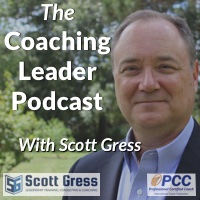We make a lot of assumptions about what we do and how we do it. It is often necessary to make assumptions. It is more efficient that way. Assumptions allow us to put some things on autopilot. This is necessary in organizing people and work. So many things are going on in life and ministry that some things, perhaps most things need to be systemized. It would be overwhelming to have to give attention to every detail of every action all the time. Yet periodically our assumptions and autopilot needs to be reprogramed. This is nowhere more serious than in how we in ministry approach making disciples.
1. Assume they will come. Whether it is attending church services, Bible study, the community service event or even meeting for coffee, we cannot assume people will show up. First, people have a multitude of choices and that is not going to change. Then there are the negative influences of the evil trinity: the world, the flesh and the devil which strain against anything good. So in a society where the norm is no longer attending church we are shooting ourselves in the foot if we assume that we just need to have a good service, study, sermon etc. and then people will show up. Nope. While we need to work at doing quality work, that in itself is not a guarantee that people will show up. The real reason people will often be present is not because of what is happening but rather because of relationships. We’ve seen this truth when people who don’t really like the activity come anyway because their friends will be there. So it comes down to who has invited them. It matters who they will sit with, talk to, ride with, eat lunch or a snack with afterward. Unless someone cares enough to express interest in the growing disciple and “hold their hand” and bring them with them, they may not show up.
So when they don’t we can’t whine about people forgetting the time or being irresponsible and immature or whatever excuse they use. We need to overcome this with love and personal attention so they show up. We know at the end they will appreciate the time spent with others, the challenging teachings, the powerful Word of God. Yet we can’t assume they will show up. Autopilot needs to be reprogramed. Show interest in individuals. Be truly authentically interested.
2. Assume that we should to find the job first then look for the people. Sure you want a good ministry strategy. That means we will have roles and holes to fill in our strategic plan. Yet when growing disciples you don’t design the strategic framework and then look for people to fill the holes. Many sad stories can be told about people who were slotted into the wrong role, or when too much was given too soon and people crashed and burned or became embarrassed and dropped out never to return. Great damage has been done not only to the ministry but more so to the people. Relationships, reputations, potential are destroyed. Few if any disciples grow (and so we rely on the same few). Rather the best practice is to start with people and find a means by which they can grow. That may be an existing role or position on a church board or committee. But more likely it is a single task or request where they can succeed. Then afterward, through a post event conversation, you can celebrate their participation, learning and growth. Then you can co-create a new task or role where they can take the next step in growing as a disciple, which will probably also involve a place of “diakonia” or service (Eph 4).
This frees up the one doing the discipling. You don’t have to wrack your brain thinking of the right person to fill a spot and then talk to someone and try to twist their arm to slot them in. That’s a recipe for impacting few people. Rather have lots of conversations asking about how they have been praying about their growing as a disciple. Ask how they believe God’s wants them to serve. In this way you start with the person rather than the need in the program.
Ironically you will probably have to steer them away from a formal role in the governance of the church because you know it would probably not be the most customized fit for their growth as a disciple. This then enables the one serving the other’s discipleship growth to focus on the relationship and asking good questions to facilitate their thinking and dreaming and thus owning their own discipleship growth pathway. Yes, this sounds a lot like coaching.
Will those “must fill spots” in your programing get filled? Eventually. But we don’t sacrifice the person for the task. Instead we value the person. We talk to lots of people, helping them to have customized growth steps. As this happens over and over, lots of roles will be appropriately filled. New ministries will probably be started and blessed as well because it is a dream the new disciple has that perhaps God has given to them. It will be multiplication rather than an attempt to maintain the status quo. In fact, church programing is ideally not for what it is designed to accomplish (Sunday school, vbs, food pantry), programming is first of all a place where people can step into responsibility and grow. The purpose will take place, but as a secondary purpose to being a means by which people can grow. Additionally while people will grow as disciples as they follow Jesus in service, that service will also drive them to the Word and sacrament for strength and grace to keep growing and serving.
3. Assume people will be discipled through the standard menu items. There is a lingering habit among churches that they program for the crowd and people will find what works for them. Usually the thought is, worship with preaching and the Word and sacrament is central. True indeed. But then when it comes to Bible studies we usually program a general study on Sunday morning and perhaps a few others for men, women, teens and so forth. On one level it makes a lot of sense. Do what serves the most people and someone will no doubt find what works for them.
But what if that doesn’t really work for people? What if they can’t fit that in or what is presented to the group class isn’t really helping them and their growing edge? The fact is that they will either drop out or find something else online or perhaps even find something at another community of faith. Perhaps they will even do that concurrently: worship at one place, service at another, Bible study at a third, fellowship at a fourth. True consumer Christianity. But rather than criticize and complain about “them” there is a better way.
Expanding on number 2 above we need to meet with people and help them think through and customize their discipleship growth plan. Just like a medical doctor who prescribes treatment or perhaps just like a nutritionist or personal trainer who helps someone with their diet and exercise, doesn’t it make sense for the more mature disciple to customize the “spiritual diet” and “exercise” of the less mature or growing disciple? Of course it does. Dialogue can turn into helping them think through the elements of regular reception of word and sacrament, both corporately and individually through their devotions. We can help them think through personal witnessing and respond to His grace through serving. Then they will own it more fully, be more likely to follow through and they can repeat the same conversation with someone they are influencing for Christ. It is scalable.
It’s time to rethink our assumptions about how we do what we do because it is getting in the way of making disciples or “teaching them to obey” all that I have commanded.
Sign up for our email newsletter with new blog posts and information and announcements:
Scott Gress is called by Lutheran Counseling Services and partners with the FL-GA District of the Lutheran Church as an independent contractor. He specializes in Leadership Training, Consulting, Coaching and Coach Training. Contact Scott to continue the conversation or experience a free sample coaching session. 561-542-4472, scottgress@me.com or scottgress.com
"Coaching leaders of leaders"
Check out the new: Coaching Leader Podcast!


